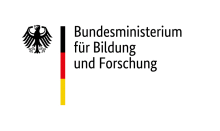Learning with the Internet

Aim of the project | ||||
| The educational objective to enhance children's media competency at school has already been implemented to a great extent. However, teachers now face a new facet of media education. They are expected to already integrate computer and internet training into the curriculum at the elementary-school level in order to offset social disadvantages for off-line kids in a knowledge-based society. The project includes a teacher survey that will provide information on the role currently played by the internet in elementary-school learning and on the ways in which teachers help pupils acquire internet skills. Based on the results obtained in the project How children learn to know the internet, it intends to analyse differences in children's internet use during their leisure time and at school. The project wants to document how elementary-school pupils surf the world wide web and how teachers assist them in different learning environments in school. Using technical devices for participant observation, the project will observe children's internet activities. To stimulate usage, these examples will be turned into incentives that offer a realistic view of both opportunities and obstacles emerging as the web is integrated into daily practice in elementary education. The project's aim is to develop educational starting points for the systematic improvement of children's internet competences by integrating it into an overall concept of developing pupils' media literacy. | ||||
Issues | ||||
| The internet is a medium that is interactive and encompasses other media. As such, it requires developed reading and writing competences. This holds true in particular if the children not only want to play on the 'kids' web' but also wish to communicate and obtain information. Because elementary-school pupils are just learning to read and write, they are often dependent on adult support when surfing the web. At home, the place where most children use the internet, this help is provided rather spontaneously and unsystematically. We therefore want to check whether children can profit more from surfing the web in guided (learning) situations than when using it on their own. Being a relatively new technology, the internet is only gradually making its way into elementary-school curricula. The project looks for 'prototypes' of internet usage in elementary school. Selected cases will exemplify the specific advantages offered by children using the internet at school, with a view to their skill development. The following questions will be studied: | ||||
| ||||
Focal points | ||||
| Taking stock: Data will be collected on settings in which the internet is used in elementary schools, for example such issues as key areas regarding content, subjects and didactics; ways of methodologically integrating the world wide web into lessons and daily school practice; assessing the impact of the web on pupils' motivation and interests; class and school networking; teachers' positive and negative experiences; organization of technical support; and offers and utilization of continuing professional education courses. Observation: The project will document lessons as well as working groups or projects. Eight to ten settings will be documented to stimulate work with the internet in elementary schools. The project envisages group discussions with children on their internet use at school and at home. It will observe pupils' web activities during lessons, as well as their interactions with other pupils and with teachers. The focus of the monitoring work will be on preferred content, orientation strategies, navigation strategies, search and selection strategies, problem-solving, co-operation and support from teachers. Secondary analyses: In order to obtain basic educational reference points to be used when categorizing the qualitative results of the study, the project will continually process quantitative data obtained from various studies on the development of children's internet use at both home and school. | ||||
Methods | ||||
| The project will carry out an inventory on internet use in elementary schools by interviewing principals and teachers utilizing a standardized questionnaire. This survey will be linked to representative results on the utilization of out-of-school resources obtained from the German Youth Institute's School and social networks project. These findings will make it possible to specifically include those elementary schools in the quantitative survey that not only have access to the internet but already use it for teaching, group work or projects. Development of the questionnaire will be based on discussions with experts. Interviews will be carried out in co-operation with TNS Infratest Sozialforschung, Munich. The description of the elementary-school pupils' internet activities will be based on combined qualitative methods. Participant observation of pupils surfing the web in different learning environments at school will be the primary source of information. 'Field notes' will be digitally recorded using video cameras and a screen corder. These two image sources will then be synchronized to produce a film for sequential analysis. In addition, the project plans to carry out group discussions and perception- as well as reading-skill tests with the children and qualitative interviews with their teachers. The material will be subjected to a sequence analysis identical to the one used in the project How children learn to know the internet, which studied how children use the internet on their own. This will enable comparison of how children surf the world wide web at school and elsewhere. | ||||
| The project is sponsored by the German Federal Ministry of Education and Research. The responsibility for its content rests with the authors. | ||||


